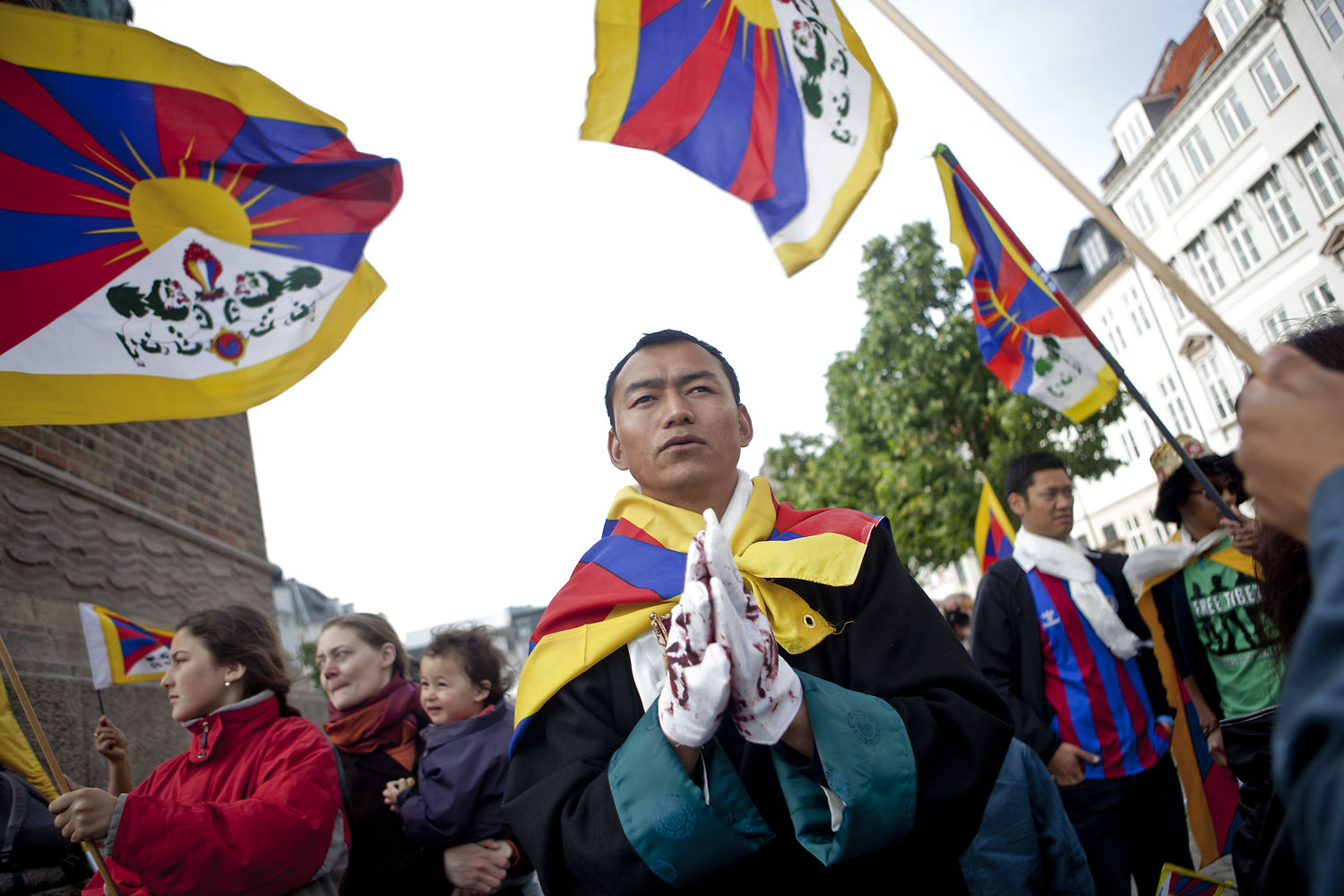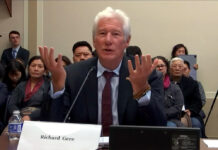
(TibetanReview.net, Jun09, 2018) – Denmark’s justice minister, Søren Pape Poulsen, has been compelled to reopen a Tibet Commission to determine in light of new information those in the top echelons of government and police who issued illegal and unconstitutional orders to stop peaceful demonstrators waving Tibetan flags during a Chinese official visit back in 2012, reported cphpost.dk Jun 7.
The recently disbanded Tibet commission had deliberated for two years at a cost of 23.3 million kroner, but because vital emails had been automatically deleted, it was not possible to decide who had given the illegal orders. As a result, two middle-ranking police chiefs ended up having to carry the can, the report said.
The commission had concluded in Dec 2017 that the police had given illegal orders in connection with the protests, which prevented people from gathering and violated their right to free speech during the 2012 visit, as well as during a second Chinese official visit in 2013, noted thelocal.dk Jun 7.
It was explained that the original commission had failed to receive mails from the ministry and police due to the automatic deletion of mails belonging to police leaders, ministers and officials 30 days after they leave their jobs.
But on Jun 7, the Justice Ministry told parliament that the national police had discovered a backup mail archive in connection with a routine server check to which the disbanded commission had no access.
The newly-discovered mails are stated to be from the top level of the police force as well as from ministers and civil servants, the report said, citing national broadcaster DR Nyheder.
The report noted that there had previously been calls to reopen the commission’s enquiry, but the government was not prepared to do so. However, it added, the justice minister, Søren Pape Poulsen, has now had to bow to pressure because if he didn’t, it looked as if a number of other parties outside the government might force the issue.
Announcing his decision, Poulson has said, “Recently, information has come to light that has raised questions about the commission’s access to emails and, by extension, the conclusion they reached. The doubt this raises is in nobody’s interest.”
The report said the government intended to reassemble the previous Tibet Commission rather than appoint a new one, arguing that a new commission would have to start again from square one.





